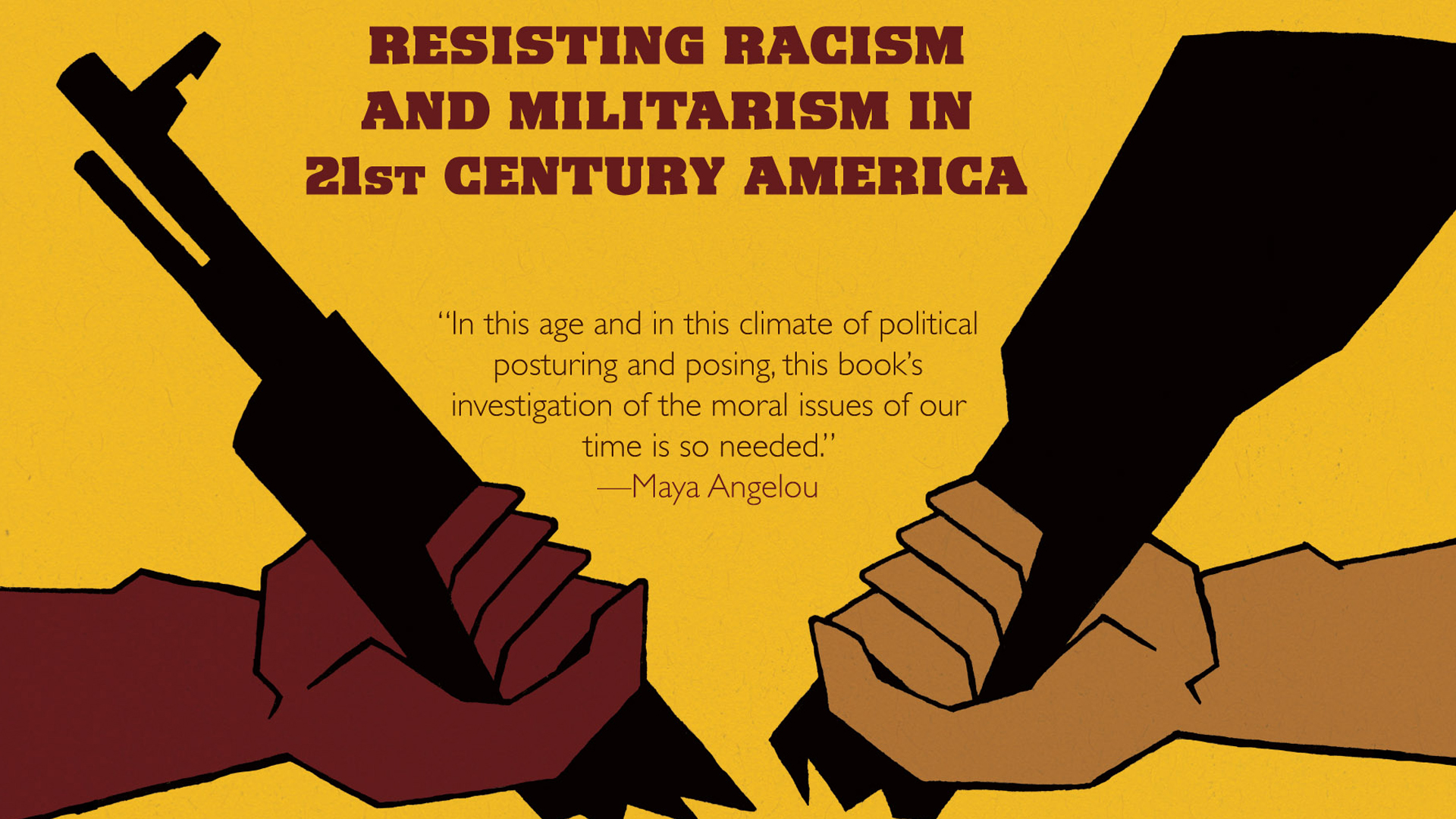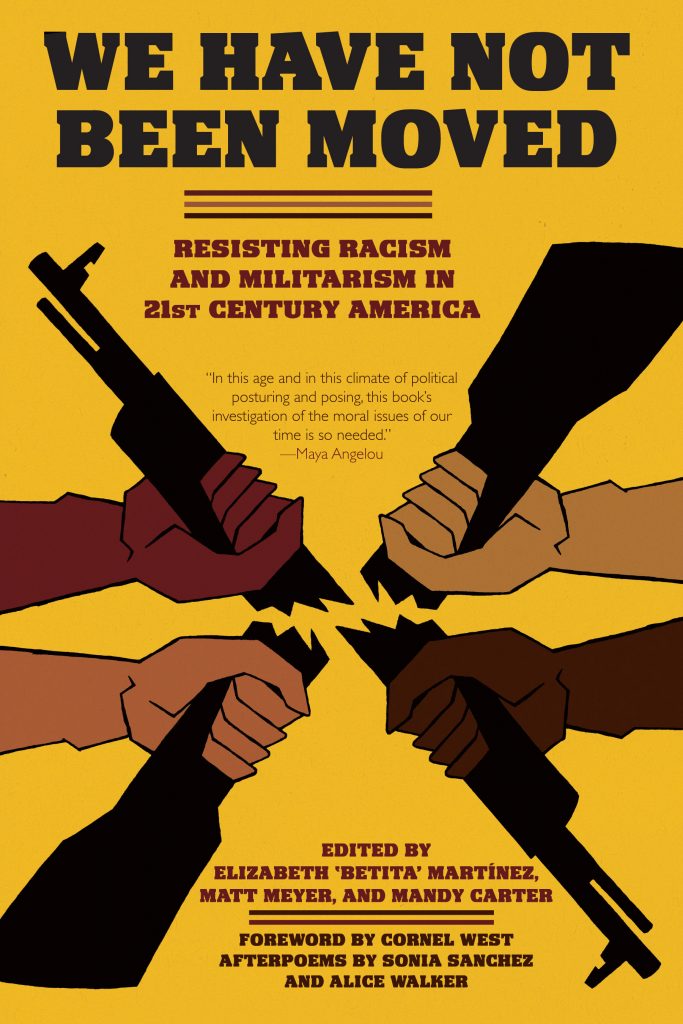by David Swanson
Michaelmoore.com
January 2nd, 2013
January 21st will be an odd day in the United States. We’ll honor Martin Luther King Jr. and bestow another 4-year regime on the man who, in his Nobel peace prize acceptance speech said that Martin Luther King Jr. had been wrong — that those who follow his example “stand idle in the face of threats.”
I plan to begin the day by refusing to stand idle in the face of the threat that is President Barack Obama’s military. An event honoring Dr. King and protesting drone wars will include a rally at Malcolm X Park and a parade named for a bit of Kingian rhetoric.
That evening I plan to attend the launch of a new book called We Have Not Been Moved: Resisting Racism and Militarism in 21st Century America.
The
Martin King I choose to celebrate is not the mythical man, beloved and
accepted by all during his life, interested exclusively in ending racial
segregation, and not attracted to activism — since only through
electoral work, as we’ve all been told, can one be a serious activist.
The
Martin King I choose to celebrate is the man who resorted to the most
powerful activist tools available, the tools of creative nonviolent
resistance and noncooperation, in order to resist what he called the
giant triplets of racism, extreme materialism, and militarism.
Taking
that seriously means ending right now the past five-year-long ban on
protesting the president. At Obama’s first inauguration we held Good
Riddance to Bush rallies because pressuring Obama to mend his
militaristic ways was not deemed “strategic.”
It turns out that refusing to push people toward peace does something worse than offending them. It ignores them and abandons them to their fate.
But pushing is not exactly the verb we should be looking for as we strive to build an inclusive peace movement. Nor is peace exactly the adjective. What we need is a movement against racism, materialism, and militarism.
To build that, those working to reduce spending on
the Pentagon’s pet corporations need to also work against the prison
industrial complex. And those working against police violence need to
work for higher taxes on billionaires. And those working to protect
Social Security and Medicare need to oppose the murdering of human
beings with missiles and drones.
We need to do these things not just
because they will unite a larger number of people. We would need to do
them all even if nobody were already working in any of these areas. We
need to do them because we are taking on a culture, not just a policy.
We are taking on the mental habits that allow racism, materialism, and
militarism. We cannot do so with a movement that is segregated by
policy area any more than we can with a movement that is segregated by
race.
The torture techniques are shared between our foreign and domestic prisons. Local police are being militarized. The latest insanity would have us arm our teachers so that when our children are shot up by failed applicants to the U.S. Marine Corps there will be, as at Fort Hood, more guns nearby. Violence at home and abroad exists through our acceptance of violence. Plutocratic greed drives both war and racism. Racism facilitates and is facilitated by war.
We Have Not Been Moved is a book with many lessons to teach. King spoke against the war on Vietnam despite being strongly advised to stick to the area of civil rights. Julian Bond did the same, losing his seat in the Georgia state legislature. African Americans marched against that war by the thousands in Harlem and elsewhere, including with posters carrying the words attributed to Mohammad Ali: “No Vietcong ever called me nigger!” So did Asian Americans and Chicanos. SNCC risked considerable support and funding by supporting the rights of Palestinians as well as Vietnamese, urging draft resistance, and stating its disbelief that the U.S. government’s goals included free elections either at home or abroad.
Immigrants rights groups (to a great extent more accurately: refugee rights groups) are sometimes reluctant to challenge the war machine, despite deeper understanding than the rest of us of how U.S. war making creates the need for immigration in the first place. But, then, how many peace activists are working for immigrants’ rights? Civil rights groups strive to resist rendition and torture and indefinite detention, warrentless spying and murder by drone. Unless they are brought more fully into a larger coalition that challenges military spending (at well over $1 trillion per year both before and after the “fiscal cliff”) the struggle against the symptoms will continue indefinitely. Environmental groups are often reluctant to oppose the military industrial complex, its wars for oil, or its oil for wars. But this past year the threat that South Korean base construction and the U.S. Navy pose to Jeju Island brought these movements together — a process our survival depends on our continuing.
Our movement must be inclusive and international. The movement to close the School of the Americas has not closed it, but has persuaded several nations to stop sending any would-be torturers or assassins to train there. The movement to shut down U.S. military bases abroad has not shut them down en masse through Congress, but has shut them down in particular places through the work of the people protesting in their countries. Where do we find media coverage that sympathizes with domestic struggles for justice within the United States? In foreign media, of course, in the media of Iran and Russia and Qatar. Those governments have their own motives, but support for justice corresponds with the sentiments of their people and all people.
Our movement
should not oppose attacking Iran purely as outsiders, but working with
Iranians. We should not oppose attacking Iran because all of our own
problems have been solved, or because the dollars that will be spent
attacking Iran could fund U.S. schools and green energy, or because
attacking Iran could lead to attacks on the United States. We should
oppose attacking Iran because we oppose militarism and materialism and
racism everywhere.
We sometimes worry about having too many issues
on our plate. How, we wonder, can new people be attracted to our rally
against another war if we unreasonably also oppose murderous sanctions?
How can we welcome new activists who doubt the wisdom of the next war
if we unrealistically oppose all militarism? How can we not turn people
off if our speeches demand rights for women and immigrants and
workers? Do people who’ve never heard of Mumia need to hear about his
imprisonment? Don’t we want homophobes to feel they can join our
campaign without loving those people?
I think this is the wrong worry. I think we need more issues, not fewer. I think that’s the genius of Occupy. The issues are all connected. They are issues of greed, racism, and war. We can work with Libertarians on things we agree on. We need be hostile to no one. But we need to prioritize building a holistic movement for fundamental change. Taxing the rich to pay for more wars is not the answer. Opposing all cuts to public spending, even though more than half of it goes to the war machine is not the answer. Insisting that banks stop discriminating, while drone pilots do is not the answer.
This is going to take work, huge amounts of work, great reservoirs of patience and humility, tremendous efforts at inclusion, understanding, and willingness to see changed what it is people become included in. But we can afford to turn off racists. We can afford to not appear welcoming to bigots. We are many. They are few.
The war machine has set its sights on
Africa. Its new name is AFRICOM, and it means business, the business of
exploitation and cruelty. We can better understand 9-11 and everything
that has followed from it if we understand the long history of
terrorism on U.S. soil. We need the wisdom of Native Americans,
Japanese Americans, Muslim Americans, and everybody else here and abroad
who has been paying attention. We need to move from making war to
making reparations, at home and abroad. We will have less reparations
to make the sooner we stop making war.
We Have Not Been Moved
includes a never before published speech by Bayard Rustin in which
Rustin quotes Ossie Davis saying to the President: “If you want us to be
nonviolent in Selma, why can’t you be nonviolent in Saigon?”
“All
the weapons of military power,” says Rustin, “chemical and biological
warfare, cannot prevail against the desire of the people. We know the
Wagner Act, which gave labor the right to organize and bargain
collectively was empty until workers went into the streets. The unions
got off the ground because of sit-down strikes and social dislocation.
When women wanted to vote, Congress ignored them until they went into
the streets and into the White House, and created disorder of a
nonviolent nature. I assure you that those women did things that, if
the Negro movement had done them, they would have been sent back to
Africa! The civil rights movement begged and begged for change, but
finally learned this lesson — going into the streets. The time is so
late, the danger so great, that I call upon all the forces which believe
in peace to take a lesson from the labor movement, the women’s
movement, and the civil rights movement and stop staying indoors. Go
into these streets until we get peace!”
Back to Matt Meyer’s Author page | Back to Mandy Carter’s Author page | Back to Elizabeth Betita Martnez’s Author page







